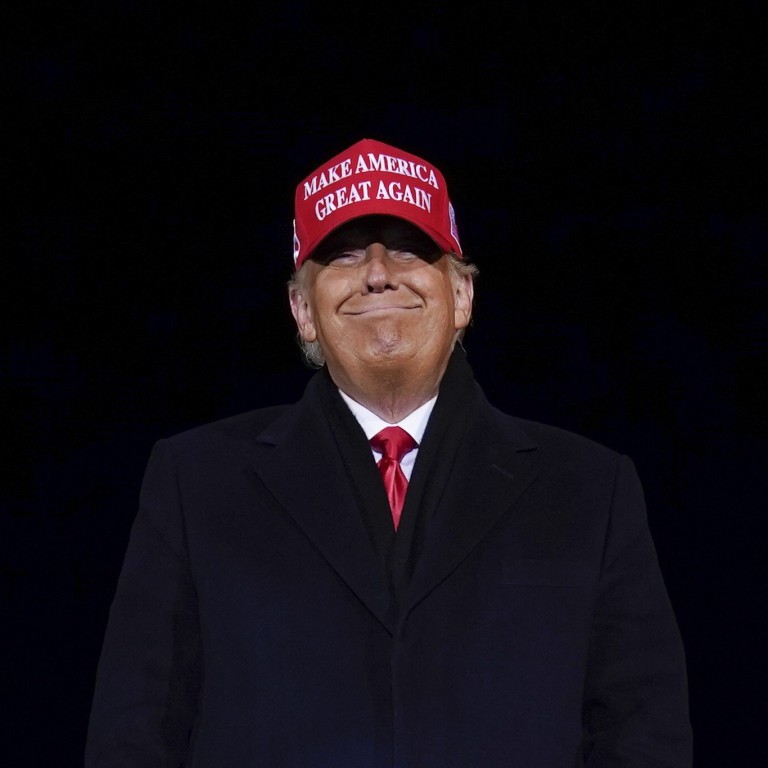
Donald Trump, in the lame duck phase of his presidency, has power to roil global markets with his final 10 weeks in office
- After President-elect Joe Biden’s win is certified, Trump will enter the so-called lame duck phase of his presidency with a formidable capacity for disruption, where any number of executive decisions might leave investors on tenterhooks
- Disputes with China spanning commerce, technology and human rights, the trade spat with Europe, and the upcoming deadline on US government funding in December all offer the potential for market-moving action
Disputes with China spanning commerce, technology and human rights, the trade spat with Europe, and the upcoming deadline on US government funding in December all offer the potential for market-moving action. The current Congress remains in place through the end of the year. Earlier this week, Secretary of State Michael Pompeo said the Trump administration is “not finished yet” with getting tough on China.
“An aggrieved and outgoing President Trump may not be in a very cooperative mood, resulting in a shutdown standoff that could bruise an already ailing US economy burdened with an ongoing pandemic,” wrote Gabrielle Debinski of GZERO Media, a subsidiary of the Eurasia Group political risk consultancy. “The upcoming lame-duck session could be more tumultuous than ever.”
Investors only have to go back to October to see how a barrage of unilateral presidential action can shake markets. US stocks slid and Treasuries surged after Trump tweeted that he had decided to halt stimulus talks.
Pricing in futures markets – where January contracts on the CBOE Volatility Index are trading above both December and February levels – suggests traders are braced for the possibility of a heightened period of turbulence.
The forced delisting of Chinese firms from US stock exchanges is another potential market-moving step to target Beijing – one that has been mulled by the administration from some time. This week, the US imposed sanctions on four more officials accused of undermining Hong Kong’s autonomy.
Meanwhile, the European Union’s imposition of tariffs on US$4 billion of US goods starting Tuesday is an escalation of a dispute over illegal aid to aircraft manufacturers Boeing and Airbus, and has the potential to spark a retaliation that would impact the region’s markets.
Domestic political manoeuvres and presidential pardons are a traditional feature of lame-duck periods of departing American leaders, and one that on the face of it shouldn’t have much market impact.
But Mark Tinker, a former Axa strategist and founder of Market Thinking, raises the possibility that an attempt to settle scores with political insiders might lead to some disruption.
“One intriguing suggestion is that between now and inauguration, Trump, with little to lose, could simply declassify large amounts of documents pertaining to the activities of what he has always referred to as ‘The Swamp,’” Tinker wrote in a note Tuesday. “Whether the markets are prepared for that remains to be seen.”
Trump is still tweeting that he will end up winning the November 3 election. But some commentators expect the president will step down without causing havoc once his terms runs out.
“I’m assuming that when the time comes, Donald Trump will leave the White House peaceably,” Ed Yardeni, founder of Yardeni Research, wrote in a note to clients Monday.

